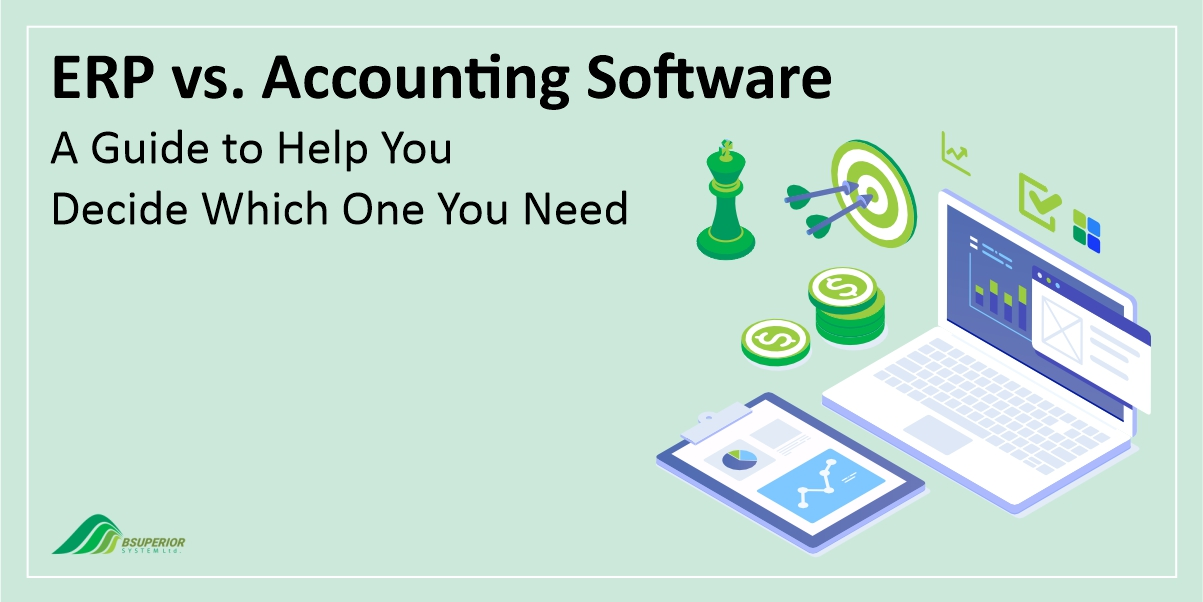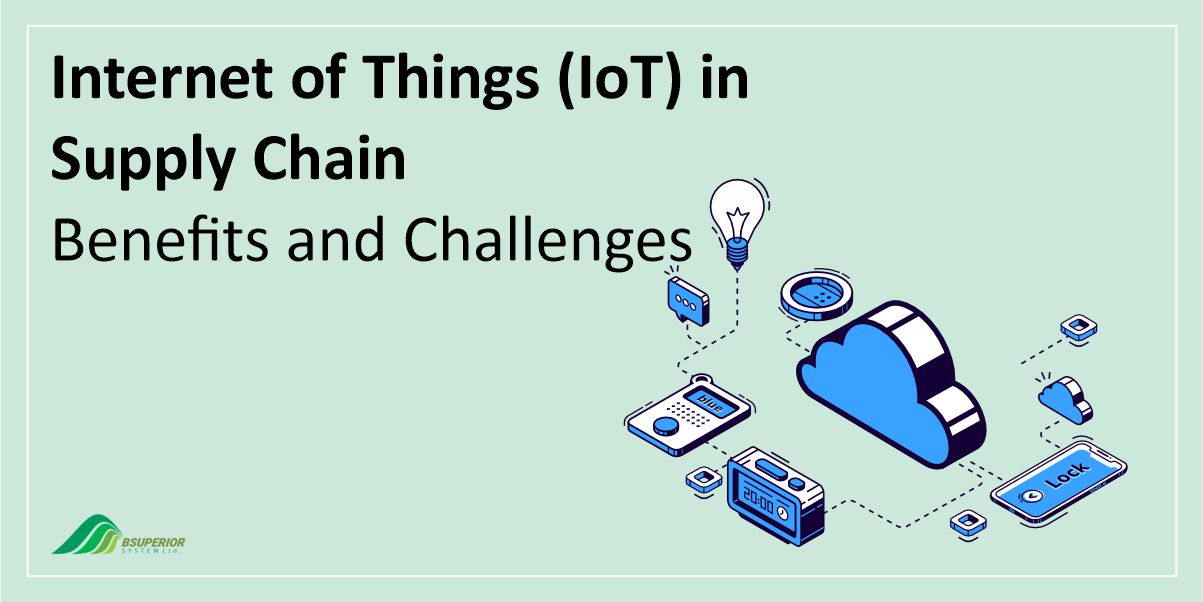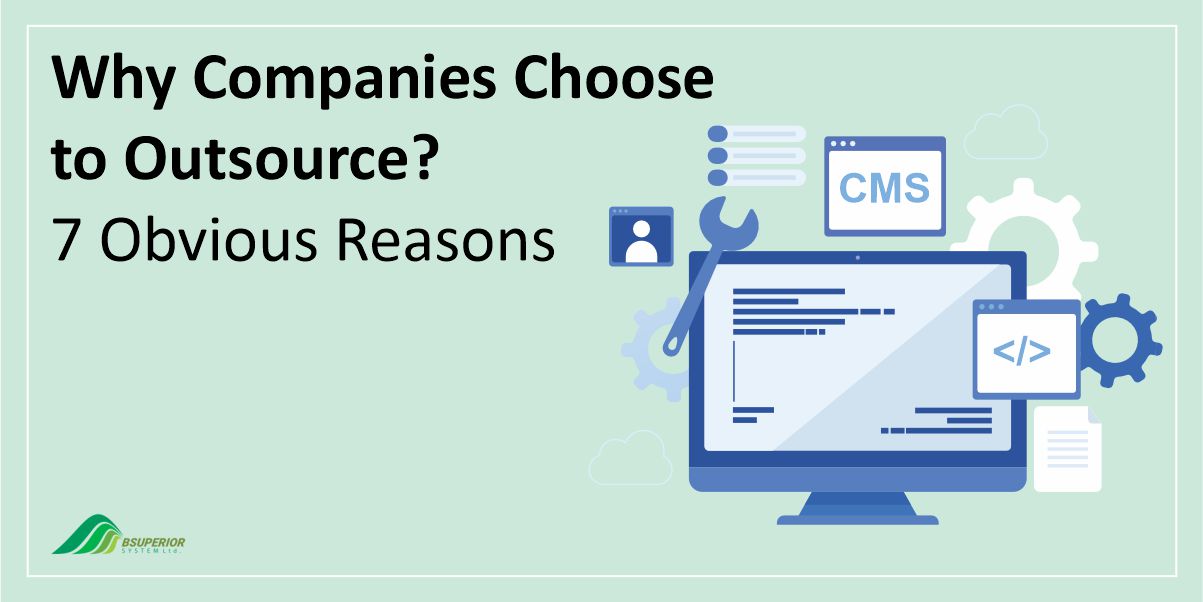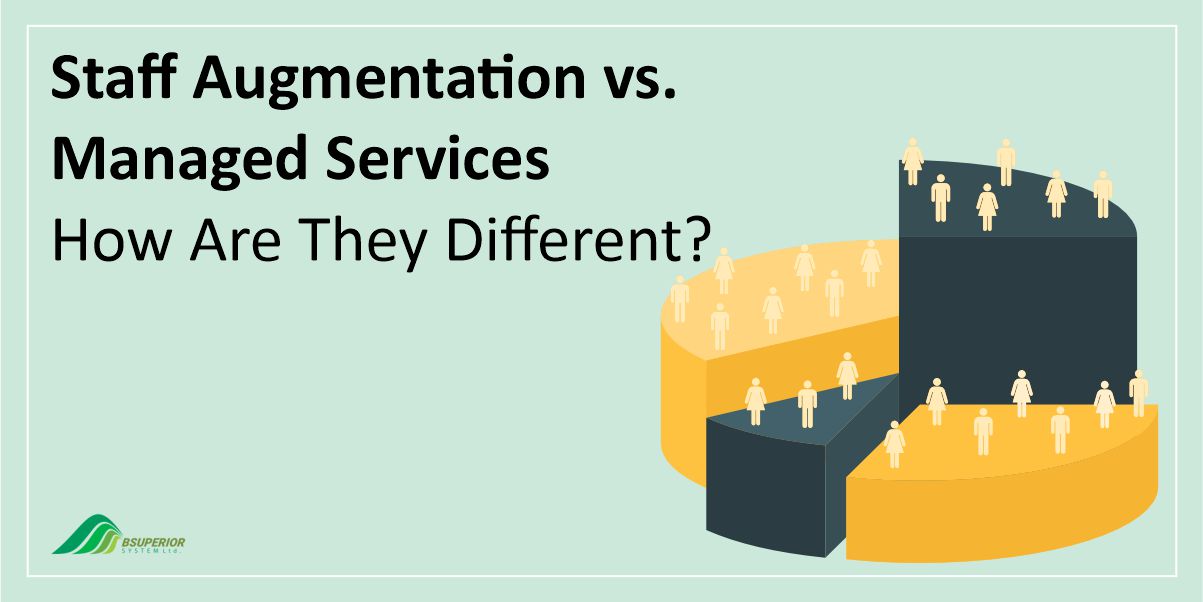ERP vs. Accounting Software: A Guide to Help You Decide Which One You Need

Table Of Content
It can be quite challenging to decide what kind of software you need to manage your financial and operational activities in your business. The main question in this regard is whether you need an Accounting software or an ERP system.
In this blog post, we will explain what ERP and accounting software are, how they differ from each other, and which one is a better option for your financial activities.
What is ERP?
Enterprise Resource Planning, aka ERP, is a software package that manages all the activities and functions of a business, such as production, sales, finance, human resources, and so on. The major purpose of ERP is to create a unified system for the whole company.
The features of ERP software can differ depending on the particular needs of each company but usually have modules for general, customer, and supplier accounting, budget management, and cash flow.
ERP software is designed to facilitate and streamline processes to give the company management accurate and up-to-date financial information that will enable them to make informed decisions.
Read more: ERP vs. EPM: A Comparison of Features, Functions, and Benefits
How Does an ERP System Work?
ERP has changed from conventional software models that relied on physical client servers and manual input systems to cloud-based software with remote, web-based access.
The platform is usually maintained by the company that developed it, with client companies leasing services offered by the platform.
Businesses choose the applications they want to use. Afterward, the hosting company uploads the applications to the server the client is renting, and both parties start working to integrate the client’s processes and data into the platform.
Once all departments are connected to the system, all data is gathered on the server and becomes immediately accessible to those with permission to use it.
Reports can be created with metrics, graphs, or other visuals and aids a client might need to assess how the business and its departments are doing.
What is an Accounting Software?
Accounting software is a type of computer program specifically designed to facilitate and automate accounting and financial tasks within a business or organization.
It provides a digital platform for recording, organizing, and processing financial transactions, managing accounts payable and accounts receivable, tracking expenses and revenues, generating financial reports, and conducting various other accounting activities.
Accounting software typically includes the following features:
- General ledger
- Invoicing
- Payroll processing
- Financial reporting
- Tax management
What is the Difference Between ERP and Accounting Software?
The major difference between ERP and accounting software relates to their scope. Accounting software helps manage and automate a company’s financial activities, and in so doing it can move small companies beyond their initial manual processes and spreadsheets. ERP software, on the other hand, offers accounting functionality but also has many other capabilities.
Learn more: ERP vs. MRP: What Are the Differences and Which One Do You Need?
Let’s have a closer look at some of the key differences between ERP and accounting software:
- Functionality: Accounting software focuses on the financial and accounting aspects of a business, such as recording transactions, generating invoices, and preparing financial statements.
ERP software, however, covers a wider range of functions, such as managing inventory, production, sales, marketing, and human resources, as well as providing analytics and reporting tools. - Integration: Accounting software usually operates as a standalone system, or integrates with a few other systems, such as banking and inventory management.
In contrast, ERP software integrates with multiple systems and applications, creating a seamless flow of data and information across the organization. - Scalability: Accounting software is suitable for small to medium-sized businesses with less complex accounting needs.
However, ERP software is ideal businesses of all sizes and can help with expansion and adapting to changing business needs.
ERP software can handle more data, transactions, users, and processes, and can be customized and configured to suit different business requirements and scenarios. - Cost: When it comes to cost, Accounting software is generally cheaper and easier to implement and maintain than ERP software.
ERP software requires more investment in terms of hardware, software, installation, training, and support.
However, ERP software can also provide more value and return on investment in the long run given that it can improve operational efficiency, productivity, and profitability. - Impact: Accounting software helps with the financial management and reporting of a business, which is essential for compliance and performance measurement.
On the other hand, ERP software helps with the overall management and optimization of a business, which can lead to improved customer satisfaction, competitive advantage, and business growth.
ERP vs. Accounting Software: Overview
ERP and Accounting software are both helpful tools for businesses to manage their finances and operations. However, they have different strengths and weaknesses in terms of their functionality, integration, and scalability.
| ERP vs. ACCOUNTING SOFTWARE | ERP | ACCOUNTING SOFTWARE |
| Functionality | Comprehensive, integrates all core business processes | Focused on accounting and financial management |
| Integration | High, provides a single view of all business data | Medium, may require integration with other systems |
| Scalability | Can scale to meet the needs of growing businesses | May not be scalable to meet the needs of large businesses |
| Cost | High | Medium to low |
| Impact | Significant, requires a major transformation of business processes | Moderate, can be implemented gradually |
ERP Pros
ERP systems can provide many benefits, such as:
- Integrated Information Across All Departments: In the past, companies used to keep information in each department database. Therefore, the information would only be shared within the specific department.
If the other departments wanted to get the data, they had to ask the respective department manager to access the information.
By using ERP, a company can store all the information from all departments in a single database which means that all the employees from different departments can use the information from the database without other department permission. - Data Reliability and Greater Visibility: ERP makes data from every department easily available to you and your senior management and provides complete access to every essential process in your business.
For example, you can track inventory levels daily, including future shipments that are yet to be received and inventory in transit. Having all your data in one centralized location enables a business to access real-time information and generate more useful reports.
All of this allows you to make fast decisions and act more strategically, as you can be confident that you are seeing the big picture at any given moment. - Improved Collaboration: ERP solutions connect teams in one single source of truth, improving communication and simplifying the completion of tasks.
With an ERP system, every employee has on-demand access to operational data, which makes understanding the company’s moving parts and their role much easier. - Flexibility & Scalability: ERP platforms are created to work for companies of all sizes and shapes, allowing users to customize the system to their specific needs, such as unique processes or unusual metrics.
No matter how big or small your business is, ERP systems allow you to add new users and data packages when your business is ready to grow. You just need to ensure that your chosen enterprise solution can support your organization’s growth. - Increased Efficiency: An ERP system can reduce the time and effort required by employees to perform their daily activities.
If properly implemented, an ERP solution eliminates repetitive manual processes, thus freeing up team members to focus on more critical and revenue-affecting tasks.
The increased efficiency leads to shorter lead times, a more transparent supply chain, improved demand forecasting, and business growth.
Learn more: ERP vs. CRM: Which is the Right One For You?
ERP Cons
The main challenges that companies encounter when starting with an ERP solution are not realizing the actual amount of work and not researching enough on the time and expenses that are involved in setting up a large enterprise app ecosystem.
- Initial Cost of the Platform: ERP platforms are usually costly, especially for companies that have many teammates, data storage requirements, and different module requirements.
- Complexity of Modular Customization: ERPs are generally very customizable, but many teams create inadequate customizations or customizations that impair the overall performance of the platform. Thus, it is essential to work with support specialists or third-party consultants who are experts in this kind of implementation.
- Lengthy Deployment and Implementation Process: Because ERPs are often shaped to exactly what a business needs, it takes a long time to customize the ERP and prepare it for initial deployment.
Many companies get annoyed by how long this process takes, and many undervalue the time and labor required before their go-live.
The main issues with time and cost usually occur because internal implementation teams greatly underestimate the scope of work and necessary customizations.
Accounting Software Pros
Accounting software is a type of program that helps you manage and automate your accounting and financial tasks. Here are the main benefits and shortcomings of accounting software:
- Time-Saving: One of the major benefits of accounting software is that it saves time by processing and handling data faster and more accurately. It reduces the time required for accounting tasks.
Accounting software can perform tasks, operations, instructions, calculations, and reports with fewer errors and more speed, which ultimately lowers the time spent on them. - Accuracy: Accounting software operates with almost perfect accuracy and incredible speed. The financial calculations can be prone to errors when done by humans. Using an accounting software can easily help you avoid any human mistakes.
- Efficiency: Efficiency is another important benefit of Accounting software. The Accounting software prevents the duplication of tasks and operations that occur when done manually.
More importantly, report creation, financial calculation, and real-time report creation can be done more efficiently than manual work. - Real-Time Reporting and Analysis: Accounting software can provide real-time reporting and analysis for improved performance and data insight to make smart financial decisions.
The reporting and analysis can create financial reports for assessing and identifying the financial condition of any organization. - Data and Information Security: The data and sensitive information are stored and can be accessed whenever needed and requested by the user. This data is protected with an extra layer of security to prevent unauthorized access.
Modern Accounting software has remarkable security features that defend and eliminate risks. The data and information are encrypted, which makes them very hard to read.
Accounting Software Cons
- Learning Curve and Training: Users need to have technical skills and knowledge to use accounting software professionally and effectively.
- Customization Limitations: Some accounting software does not let users customize the software to meet their needs. The software companies modify the software before they sell it in the market. Therefore, there are some limitations to customization in accounting software.
- Data Security Risks: Modern accounting software has extra security features. However, some security gaps are exploited by cybersecurity experts, hackers, and crackers. Therefore, users should think about security features before they pick accounting software to avoid future problems.
- Compatibility Issues: Accounting software has some limitations and can have compatibility issues with the software version, hardware features, and operating system version.
Compatibility issues happen when accounting software is connected with other systems. Therefore, the vendors provide manuals and documentation with each software package.
ERP vs. Standalone Accounting Software: Which One is Better For Your Business?
Overall, it depends on your business needs. In some cases, you may only need an accounting solution to manage basic financial data capture and reporting, but if you need more, then an ERP is the best option for you.
An ERP will allow much more integration of business operations into a single system, including aspects such as inventory and warehouse management, customer relationship management, supply chain, etc. All these aspects are not feasible through a standalone accounting solution.
If you want to know more about how an ERP system could help your company, please feel free to contact our team at BSUPERIOR. We offer ERP development services that cover various modules designed to suit your specific needs. We know that every organization is different, and that’s why our ERP solutions give you the best customization possible.
Final Words
ERP and accounting software are both useful tools for managing the financial and operational aspects of a business. However, they differ in terms of functionality, integration, scalability, cost, and impact.
Depending on your business needs, goals, and budget, you can choose the software that best suits you.
We value your input and believe this content may enhance our services. However, it's under review. If you see room for improvement, please use the "Report an issue" button below. Your feedback helps us excel.
Contact us today at –– and speak with our specialist.

![Offshore Software Development: Pros and Cons [Expert Guide]](https://bsuperiorsystem.com/wp-content/uploads/2024/04/Offshore-Software-Development.jpg)


